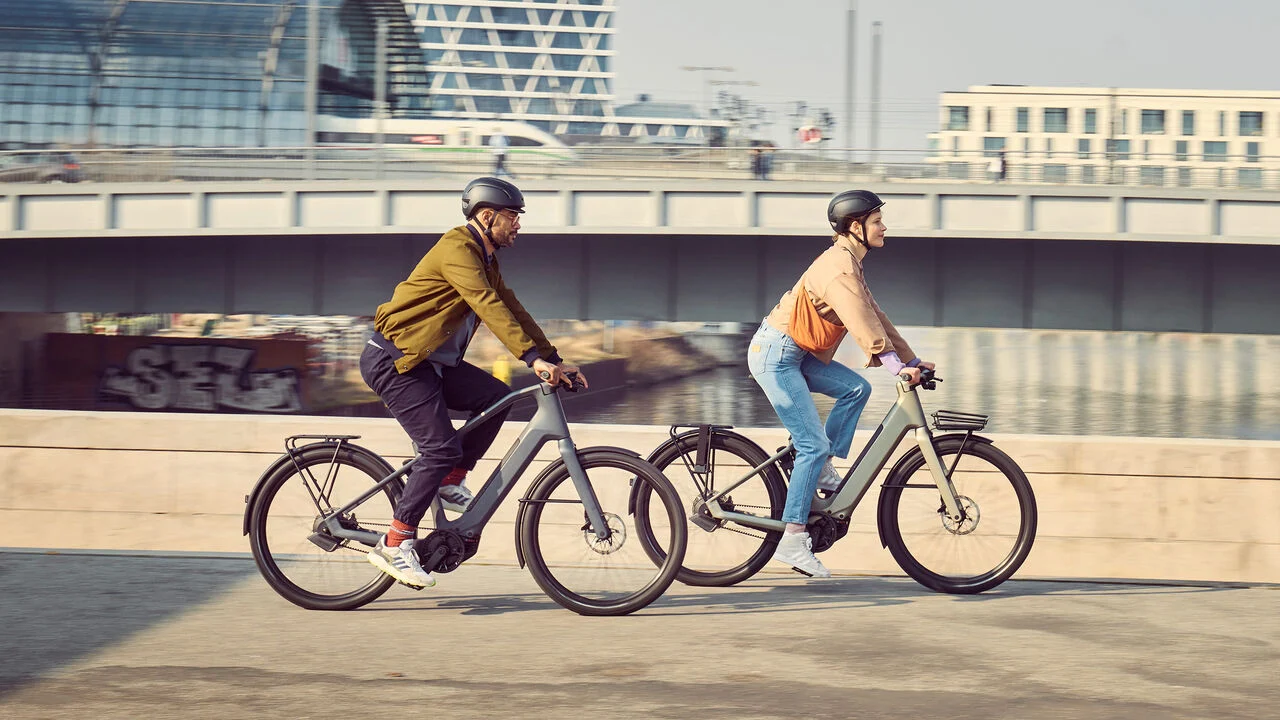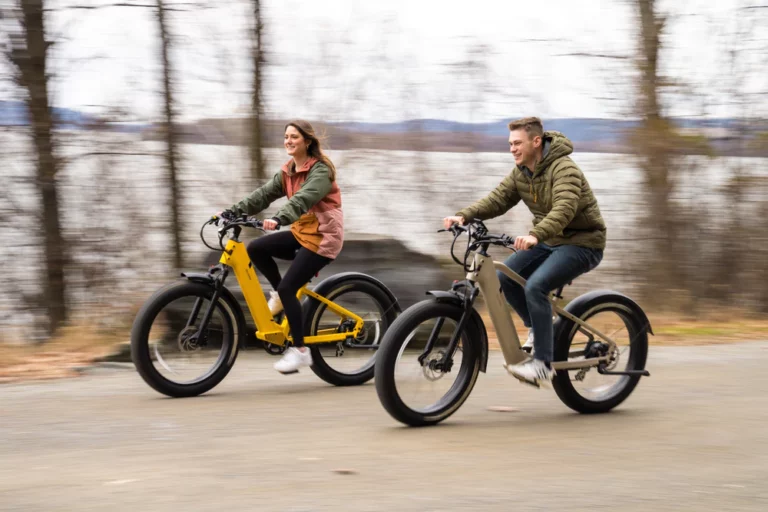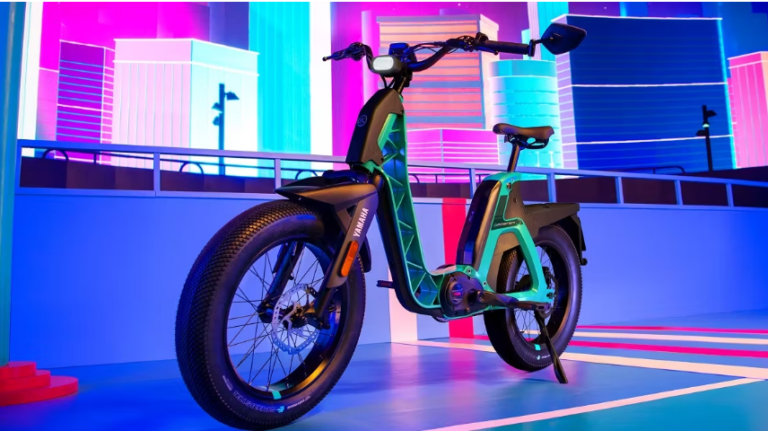Debunking the Myths Why E-Bikes Are Actually Awesome
There are many myths about e-bikes out there, and we’re here to debunk them all! Some people think that they’re slow, or that they’re not as good as regular bikes. Others think that they’re expensive and hard to maintain.
But none of these claims are actually true! In this blog post, we’ll talk about why e-bikes are actually awesome and dispel all the myths about them. So if you’re curious about electric bikes, keep reading!
Historical Context
Most of the myths about e-bikes come from a time when electric bicycle technology was relatively new and unknown. At that point, people were skeptical because they didn’t understand the technology or how it worked. But now, we know much more about e-bikes and the advantages that they offer riders. As such, many of the myths out there are simply no longer relevant or true!
If we want to truly understand most of the myths about electric bikes, we need to put the discussion in its historical context.
Misinformation in Media
Media also played a big role in the spread of misinformation about electric bikes. In the early days, headlines tended to focus on sensational stories involving electric bikes and their potential dangers. While those stories certainly got attention, they weren’t necessarily accurate or based on factual information.
The truth is that electric bikes are generally just as safe as traditional bicycles when operated responsibly and with caution. Furthermore, electric bikes are actually more efficient than traditional bicycles since they don’t require as much effort to push forward, making them a great option for commuters or recreational riders alike.
Changes in Technology
Electric bike technology has changed drastically in the past few decades, and many of the myths that were perpetuated in the early days of electric bikes have been debunked. Modern lithium-ion batteries are much lighter and more efficient than the old lead acid batteries, allowing for longer rides without a charge. Furthermore, electric motors are now much quieter and more reliable than they used to be, reducing the likelihood that you’ll disturb your neighbors or other people on the road.
Confirmation Bias and Social Media
Memes, jokes, and other social media posts often paint a negative picture of electric bikes. However, many people are unaware that the vast majority of these jokes are just confirmation bias based on outdated information. With modern technology and battery life improving, electric bikes can be an excellent option for commuting or recreational riding. Such a rise in popularity has lead to more bikes of all types being seen on the roads, with cyclists becoming an increasingly visible and respected group within society. With electric bikes faster, more powerful, and more affordable than ever before, it’s clear that they have a lot to offer.
Lack of Experience and Exposure With Electric Bikes
Electric bikes are becoming more and more popular all the time, but many people still don’t know much about them. While some may have heard of electric bikes, they may not be familiar with the capabilities or advantages they offer over traditional bicycles. This lack of exposure can lead to misconceptions and even jokes about their supposed lack of power or limited range.
Fortunately, the electric bike industry is becoming more visible and vocal. Companies like Giant and Trek are making big efforts to raise awareness of electric bikes and their potential benefits. They’re hosting demo days, sponsoring events, and doing their best to spread the word about what makes electric biking so great.
Cultural and Demographic Factors
When it comes to culture and demographics, electric bike use is still in its early stages. In many countries, electric bikes are often seen as a luxury item used by the wealthy or “techy” types. This perception may be slowly changing, however, as more people discover the practical benefits and cost savings of owning an electronic bike.
In China and other parts of Asia, electric bikes are more popular and widely used. In Europe, e-bikes have been around for a few decades and there is no shortage of enthusiasm for them.
Resistance to Change
Its natural for people to be resistant to change, and this is especially true when it comes to adopting new technology. Many people may not be comfortable with the idea of riding an electric bike, or they may feel that they don’t need something like it. There is a certain level of pride associated with traditional bicycles and some people are simply unwilling to give that up to switch to an e-bike.
In addition, there is a learning curve associated with using an electric bike. It’s not as simple as hopping on and taking off. Many people may find that the technology behind it can be intimidating or confusing. This could lead some people to question whether they really need one at all or if it’s really worth the effort to learn how to use and maintain an electric bike.
Economic and Political Factors
Economic and political factors can play a role in whether or not people choose to buy an electric bike. In some countries, electric bikes are heavily subsidized by the government, making them much more affordable than they would be otherwise. In other countries, however, there may be no such incentives and the cost of purchasing an e-bike can be prohibitively high.
While it is in the best interest of most governments to promote green transportation options, the lack of subsidies in some places may make electric bikes difficult for many people to buy.
Electric Bikes are Here to Stay
The future looks bright for electric bikes as technology continues to improve and prices continue to drop. As electric bikes become increasingly commonplace in cities and towns across the world, their positive effects on both individuals and the environment will only become clearer. With options available for almost any budget, electric bikes are an increasingly attractive choice for those looking to reduce their carbon footprint and make the most of their daily commutes.
The future not only holds possibilities for innovation in electric bike design, but also in the production and sale of these vehicles. As more manufacturers enter the market and prices drop, electric bikes will become an increasingly feasible option for people all over the world. Governments could even offer incentives to encourage people to switch to electric bikes, making them easier and more affordable than ever before.
Myths About E-bikes
One of the most prevalent myths about e-bikes is that they are slow and limited in range. In reality, however, modern e-bikes can reach speeds of up to 28 mph and distances of up to 50 miles on a single charge. This means that e-bikes can easily keep up with other vehicles on the road, making them a viable option for commuters who want to save time or energy during their journeys.
In addition, many people believe that electric bikes are expensive and difficult to maintain. But in reality, prices have come down significantly in recent years and maintenance is no more complicated than it would be for any other type of bike. With proper care and regular servicing, electric bikes can last just as long as traditional bicycles.
Ultimately, electric bikes offer an environmentally friendly and cost-effective way to get around town without sacrificing convenience or performance. Whether you’re looking to save money on fuel costs or simply reduce your carbon footprint, electric bikes offer a great solution. They’re also perfect for taking on longer journeys, as the motor helps to make pedaling easier and less tiring.
Frequently Asked Questions
Q: How do electric bikes work?
A: Electric bikes use a combination of an electric motor and rechargeable battery to power the bike. When you pedal, the motor assists your pedaling with additional torque, enabling you to travel further distances with less effort.
Q: What are the benefits of electric bikes?
A: The main benefit of electric bikes is that they provide an easy and efficient way to get around town or for longer journeys. They’re also environmentally friendly and cost effective, as you don’t need to pay for fuel or public transport costs. Additionally, electric bikes can be easier to ride than traditional bicycles as the motor helps reduce fatigue during long rides.
Q: How much maintenance do electric bikes require?
A: Electric bikes require the same level of maintenance as a traditional bicycle, such as checking tire pressure and inflating them when needed. Additionally, you should make sure to keep the motor and battery in good condition by regularly cleaning and lubricating them. The bike’s chain should also be kept clean and oiled. Finally, it is important to ensure that all electrical components are working properly. Battery life can be extended by charging after every ride, or once every few weeks if the bike is not being used often.
Conclusion
E-bikes are truly awesome, and they offer tons of benefits to those who choose to ride them. They’re fast, affordable, and easy to maintain – all things that make them a great alternative to regular bikes. So don’t let the myths stop you from giving e-bikes a try! With their many advantages and conveniences, you won’t regret getting one. So go ahead and get yourself an electric bike today! You’ll be glad you did.
Reference
https://mbaction.com/debunking-electric-bike-myths/
https://road.cc/content/feature/e-bike-myths-debunked-280571
https://epiccycles.ca/debunking-ebike-myths-facts-know/
https://www.axcess-electric-bikes.co.uk/news/12-myths-about-electric-bikes/







